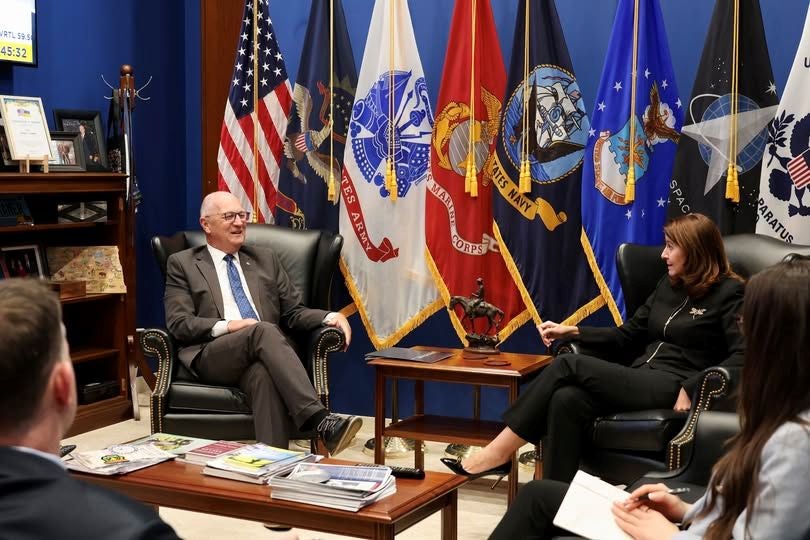Defense Daily
-
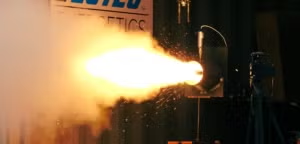 Business/Financial
Business/FinancialVoyager To Expand And Consolidate Rocket Motor Capabilities In Colorado
Voyager Technologies [VOYG] on Thursday said it has broken ground on an expansion of its American Defense Complex in Pueblo, Colo., that will consolidate local facilities and add space related […]
-
 Air Force
Air ForceMobile And Mid-Range Targets An Issue For USAF, Targeting Planner Says
Defense analysts have said that insufficient attention to fielded forces’ input in the determination of military service requirements has been a chronic problem for the Defense Department, one example of […]
-
 Business/Financial
Business/FinancialLockheed Martin Posts Strong Fourth Quarter, Plans Large Boost In Internal Investment
Lockheed Martin [LMT] on Thursday reported strong earnings and sales results in its fourth quarter with the bottom-line benefitting from the absence of huge charges a year ago on classified […]
-
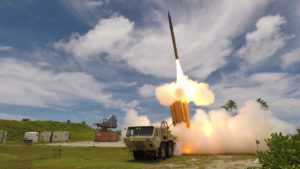 Pentagon
PentagonLockheed Martin, Pentagon Sign Agreement To Quadruple THAAD Interceptor Production
Lockheed Martin [LMT] and the Pentagon have agreed on a framework for the company to quadruple the production of Terminal High Altitude Area Defense (THAAD) interceptors over the next seven […]
-
 Nuclear Modernization
Nuclear ModernizationW80-5 “Just Came Up,” Will Go On SLCM-N, Weapons Directors Say
The W80-5, a new variant of the W80 warhead family, is on a “more aggressive schedule” to go on the nuclear-armed sea-launched cruise missile (SLCM-N), weapons directors said on the […]
-
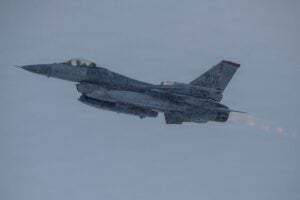 Air Force
Air ForceUSAF “Focus Right Now Is Readiness,” Acting Vice Chief Says
U.S. Air Force Secretary Troy Meink and Chief of Staff Gen. Kenneth Wilsbach are emphasizing the provision of needed parts for aircraft under a “fly, fix, and fight” strategy, Lt. […]
-
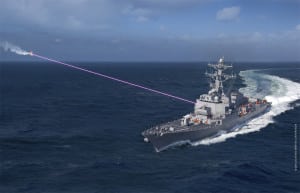 Navy/USMC
Navy/USMCHELIOS Shipboard Laser System Successfully Tested In Counter-UAS Uses
The Lockheed Martin [LMT]-developed HELIOS shipboard laser system was successfully tested at sea against four drones, the company said on Thursday. HELIOS had struggled to get to its full 60-plus […]
-
Thursday, January 29, 2026
- USAF Considering “Modular” Missile Silos For Sentinel
- GAO Warns Of Tech Readiness, Cost, And Schedule Risks For SDA Constellation
- CNO’s New Hedge Strategy Uses “Tailored Forces” To Underpin Upcoming Strategic Guidance
- Cyber Top of “Threat Vector” List For STRATCOM Commander
- PDW Details TiC Work With C100 Drone, Eyes Army’s Potential Move Into MRR Later This Year
- Hanwha Securing Lease To Build $1.3 Billion Munitions Plant At U.S. Army’s Pine Bluff Arsenal
- Shipbuilding Leads GD To Solid Fourth Quarter In Finish To Strong Year
- GPS III Satellite Successfully Launched Into Orbit
-
Thursday, January 29, 2026
- USAF Considering “Modular” Missile Silos For Sentinel
- GAO Warns Of Tech Readiness, Cost, And Schedule Risks For SDA Constellation
- CNO’s New Hedge Strategy Uses “Tailored Forces” To Underpin Upcoming Strategic Guidance
- Cyber Top of “Threat Vector” List For STRATCOM Commander
- PDW Details TiC Work With C100 Drone, Eyes Army’s Potential Move Into MRR Later This Year
- Hanwha Securing Lease To Build $1.3 Billion Munitions Plant At U.S. Army’s Pine Bluff Arsenal
- Shipbuilding Leads GD To Solid Fourth Quarter In Finish To Strong Year
- GPS III Satellite Successfully Launched Into Orbit
-
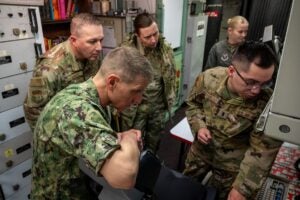 Nuclear Modernization
Nuclear ModernizationCyber Top of “Threat Vector” List For STRATCOM Commander
“Five significant threat vectors” are of concern to U.S. Strategic Command (STRATCOM), Adm. Richard Correll said on Wednesday at the Nuclear Deterrence Summit in Arlington, Va. in his debut public […]

